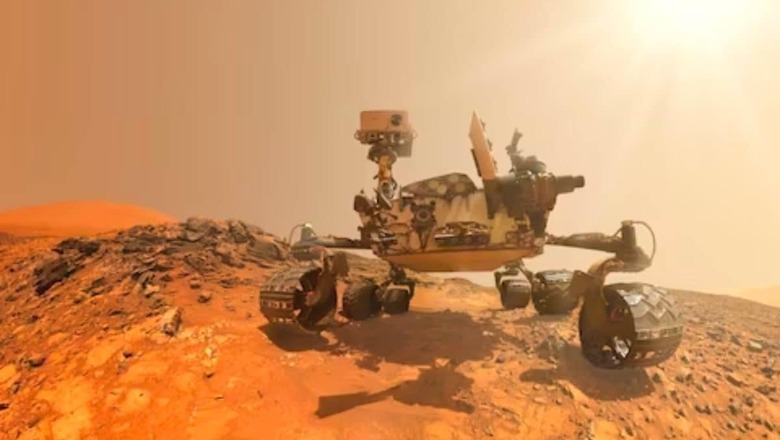
views
Calls have been made to NASA urging them to send humans to Mars, arguing that humans can accomplish tasks in hours that robots take years to complete. The Mars Exploration Program Analysis Group (MEPAG) suggests that it’s high time for direct human exploration of the Red Planet instead of solely relying on Mars rovers and robotics for data collection.
According to a Daily Star report, NASA is being pushed by the Mars Exploration Program Analysis Group to expedite sending humans to Mars. They argued that despite the presence of robots on Mars, their sluggish data processing capabilities cause setbacks. Bruce Jackowski, the lead researcher, stressed to Space.com that despite significant attention on Mars missions, scientific progress hasn’t caught up to send humans to explore Mars.
Bruce Jakosky told Space.com that although there’s a lot of attention on planning human trips to Mars, there’s not enough focus on scientific exploration. Jakosky, who is a senior research scientist, suggested that improving Mars missions could make research progress faster.
In his critique of the upcoming Artemis missions, Bruce Jakosky commented on NASA’s planned projects aimed at bringing astronauts closer to Mars. Jakosky suggested that the current Artemis missions lack effective collaboration and proposed sending teams to Mars sooner rather than later.
He further said that sending astronauts facilitates collaboration between science and engineering. According to him, human EVA activity can expedite data processing tasks that take a long time for rovers. Jakosky urged NASA to consider including astronauts in plans such as the Moon Mars Mission.
Jakosky highlighted the efficiency of humans during extravehicular activities (EVA). He emphasised that astronauts can complete data acquisitions and sample collections in a matter of hours, tasks that have taken rovers years to accomplish. With NASA’s Moon-Mars initiative progressing, Jakosky stressed the importance of considering the development of supporting instruments and technologies now to prepare astronauts for conducting exceptional science on Mars.




















Comments
0 comment